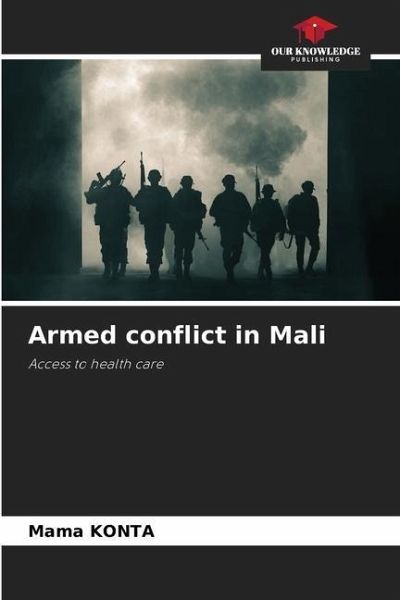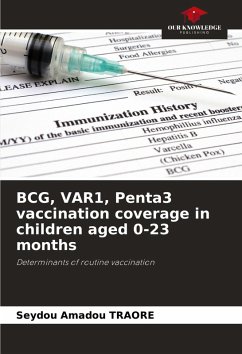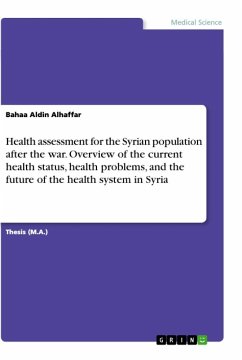
Armed conflict in Mali
Access to health care
Versandkostenfrei!
Versandfertig in 6-10 Tagen
40,99 €
inkl. MwSt.

PAYBACK Punkte
20 °P sammeln!
The armed conflicts in Mali have led to forced displacement within the country. The management of these IDPs in health centers has given rise to ethical deviance.The objective of this study was to assess the ethical tensions in accessing care for IDPs.It was a prospective cross-sectional study conducted with 259 individuals. The questionnaire concerned 254 displaced persons, including 150 women and 104 men, and the in-depth interview was conducted with five individuals, including one person in charge of the Sogoniko CSRéf, one person in charge and one representative of the Direction Nationale...
The armed conflicts in Mali have led to forced displacement within the country. The management of these IDPs in health centers has given rise to ethical deviance.The objective of this study was to assess the ethical tensions in accessing care for IDPs.It was a prospective cross-sectional study conducted with 259 individuals. The questionnaire concerned 254 displaced persons, including 150 women and 104 men, and the in-depth interview was conducted with five individuals, including one person in charge of the Sogoniko CSRéf, one person in charge and one representative of the Direction Nationale du Développement Social (DNDS), one agent of the NGO AMSODE, and one representative of the PINAL Association. The data were generated in Office 2016 and analyzed in SPSS version 26.We used the Chi2 Test with P 0.05 with CI=95 to establish the relationships between the variables. We found that malaria was the highest disease prevalence with 16.5% followed by stomach ache 13%. The quality of care was unsatisfactory at 53.1%. Victims of violence represented 43% versus 57%.












